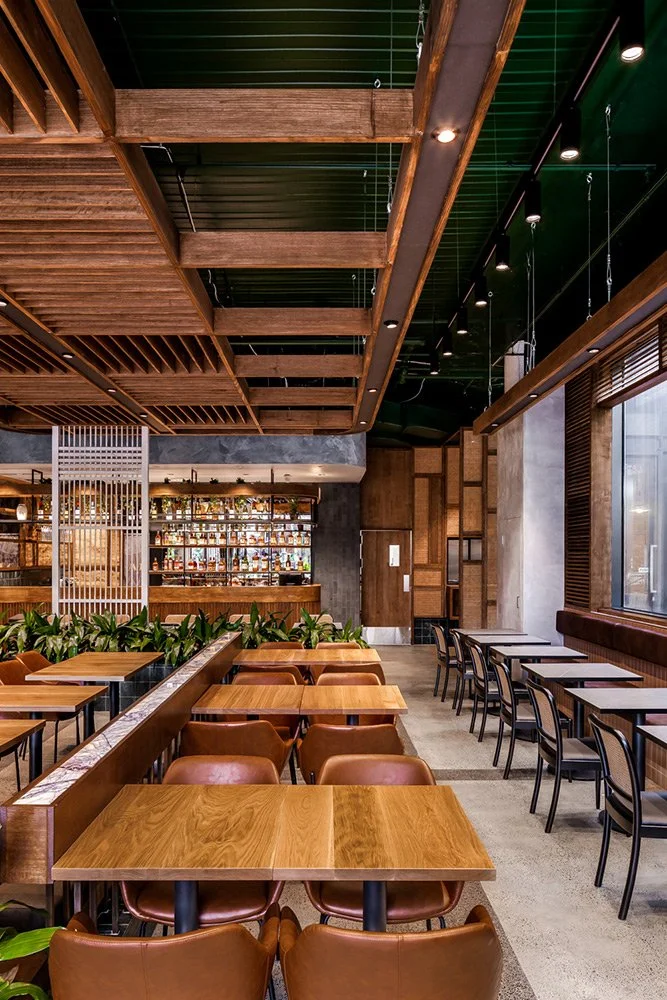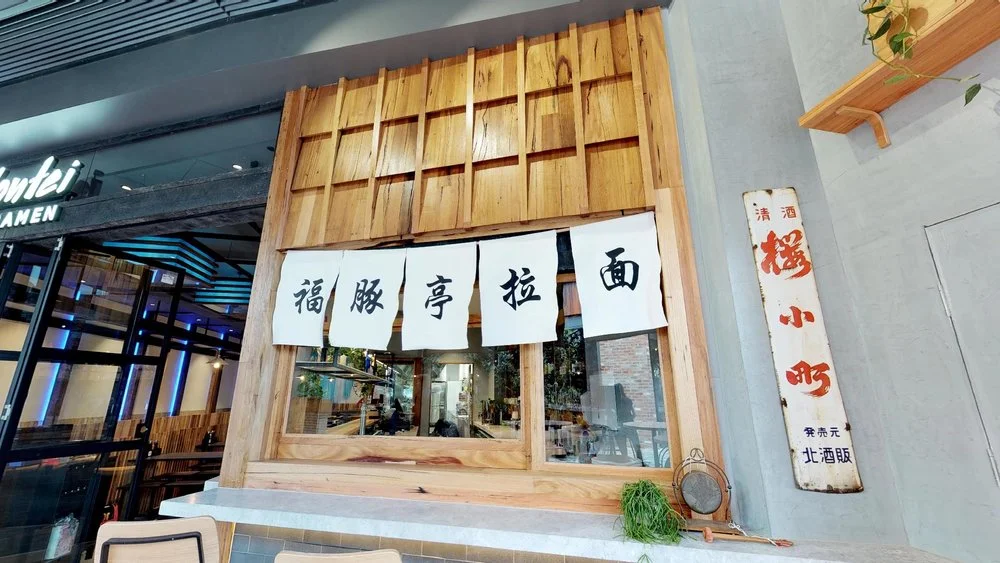Dohtonbori
Cook-your-own Kansai-style vegetable and seafood pancake, or go Hiroshima-style and watch as the staff expertly fry and flip pork belly, yakisoba noodles and egg at the first Aussie outpost of this popular chain.
The diner’s exterior resembles the streets of Japan’s older districts, with worn-looking tiles, timber fencing, a slatted awning and a few outdoor benches and banquettes.
Inside, the fit-out combines traditional with modern, with shōji (paper screen panels) around semi-private booths, hanging decor that resembles paper fans, and bottles of sake lining the shelves, playing off against backlit panelling, plush leather seating and geometric light fixtures. Melbourne design studio Sandbox is behind the look.
Whenever I go home to Manila, I have a mental list of restaurants I want to visit – not necessarily Filipino food, but old favourites and new openings I can’t experience in Melbourne. Do-it-yourself okonomiyaki (Japanese savoury pancake) joint Dohtonbori is on the list, but I’ve never made it in. Now I can finally cross it off: the first Australian outpost has landed.
The eatery got its start 30 years ago in Japan and now has hundreds of branches, including in Taiwan, Thailand and the Philippines. This location in The District Docklands is the brand’s first outside of Asia.
“There’s a debate over the birthplace of okonomiyaki,” says Jenny Mok, Dohtonbori’s general manager in Australia. “Some people say it started in Tokyo, others say it’s from Osaka, where the Dōtonbori district is. Each region does different things; it’s kind of like asking where dumplings are originally from in China.”
The restaurant serves three styles. The original okonomiyaki is a bit like an omelette-pancake hybrid, with vegetables and fillings (there’s a seafood number with diced prawn, mussels and squid) mixed into the batter. Hiroshimayaki or Hiroshima-style is more laborious, with distinct layers of thin batter, shredded cabbage, fried yakisoba noodles and a crispy egg – get it with crisp pork belly. Then there’s monjayaki, similar to okonomiyaki but stickier and gooier thanks to dashi in the batter.
All the okonomiyaki are cooked on a hot metal plate, or teppan, in the middle of the table, either by you or a staff member, and start with a batter of flour and egg with some shredded vegetables mixed in. Top them all with Kewpie mayo, okonomiyaki sauce, dried seaweed and bonito flakes at will.
CLIENT
Dohtonborri
WHAT WE DID
:- Customer insights
:- Brand personality positioning
:- Shopper profiling
:- Customer journey planning
:- Zoning and category planning
:- Interior design
:- CAD Documentation
:- Environmental graphics
:- Design Management
RESTAURANTS
2+




























